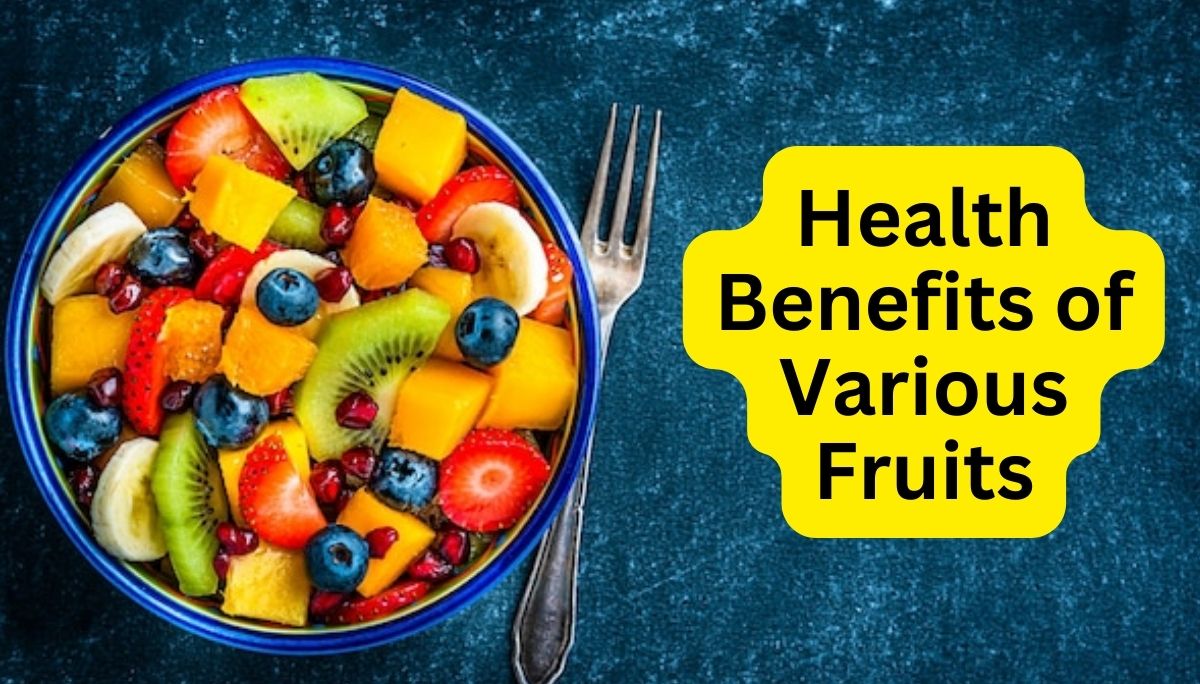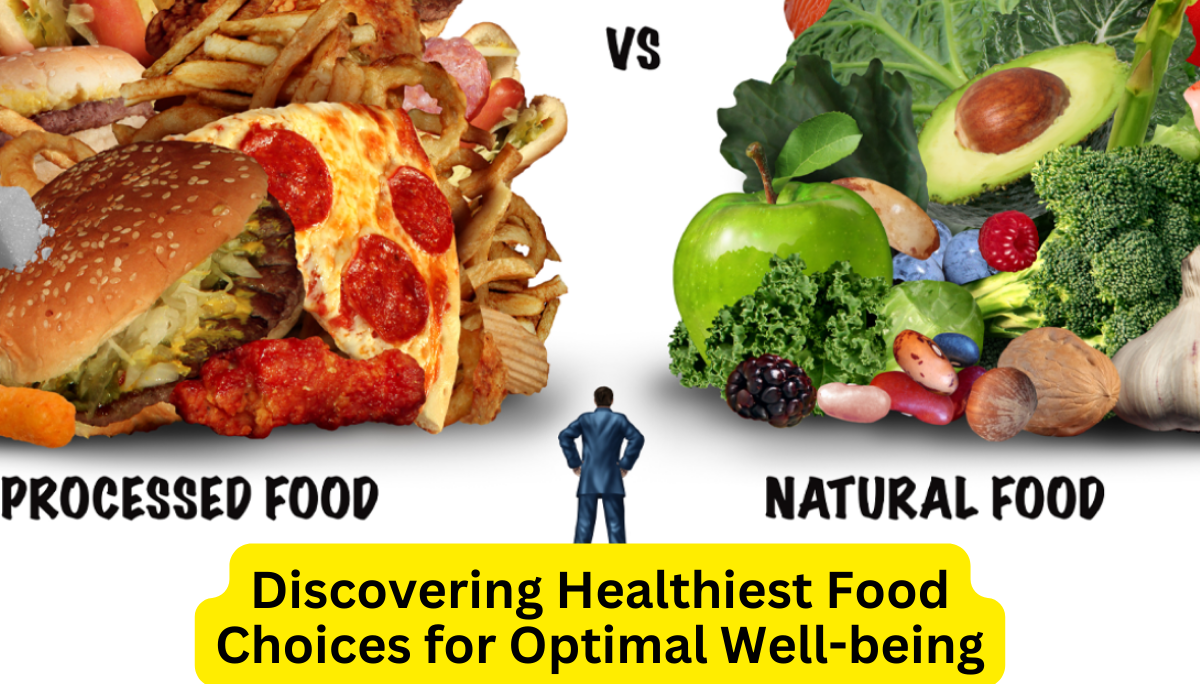Health Benefits of Various Fruits to Discover Which Ones Are Best for Well-Being – Know the Mystery
In a world filled with an abundance of fruits, each boasting its unique flavors and nutritional benefits, it’s natural to wonder, “Which fruit is good for health?” Join us on a flavorful journey as we delve into the health benefits of various fruits, helping you make informed choices that nourish your body and delight your taste buds.

Table of Contents
The Importance of Fruit in Our Diet
Fruits are nature’s vibrant and delectable gifts, bursting with an array of essential nutrients that are vital for our overall well-being. Incorporating a variety of fresh fruits into our daily diet can provide numerous health benefits, from boosting immunity to supporting a healthy weight. In a world where convenience often trumps nutrition, it’s crucial to embrace the natural goodness that fruits offer.
Nutrient Powerhouses
Fruits are nutrient powerhouses, packed with vitamins, minerals, fiber, and antioxidants that play critical roles in our body’s functioning. These natural wonders are low in calories yet incredibly satiating, making them an excellent choice for those seeking to maintain a balanced diet.
Moreover, the vibrant colors of fruits are not just aesthetically pleasing but also indicators of their unique phytochemical compositions. These plant compounds, such as anthocyanins and carotenoids, possess potent antioxidant properties that help protect our cells from oxidative stress and inflammation.
Top Fruits for Optimal Health
While all fruits offer unique nutritional benefits, some stand out as true superstars in promoting overall health. Here are a few top contenders:
- Berries: Blueberries, raspberries, and strawberries are loaded with vitamin C, fiber, and powerful antioxidants like anthocyanins. They have been linked to improved brain function, reduced inflammation, and enhanced heart health.
- Citrus Fruits: Oranges, grapefruits, and lemons are rich in vitamin C, which supports a strong immune system and promotes collagen production for healthy skin. They also contain flavonoids that may help protect against certain cancers.
- Avocados: While technically a fruit, avocados are a nutrient-dense powerhouse, providing healthy monounsaturated fats, fiber, and a wide range of vitamins and minerals, including vitamins K, C, E, and B6, as well as potassium and folate.
- Pomegranates: These ruby-red gems are packed with antioxidants, including punicalagins and anthocyanins, which may help reduce inflammation and support heart health. They are also a good source of fiber and vitamin C.
- Mangoes: Bursting with flavor and vibrant color, mangoes are rich in vitamins A and C, as well as fiber and antioxidants like zeaxanthin and lutein, which are beneficial for eye health.
Remember, variety is key when it comes to reaping the full benefits of fruits. By incorporating a diverse range of colorful fruits into your diet, you can ensure that your body receives a comprehensive array of essential nutrients.
For more information on the nutritional benefits of various fruits, check out the USDA FoodData Central.
Frequently Asked Questions: Health Benefits of Various Fruits
Q: Can eating too much fruit lead to weight gain?
A: While fruits are generally low in calories and high in fiber, overconsumption of any food can contribute to weight gain. It’s essential to practice portion control and balance your fruit intake with other nutrient-dense foods as part of a well-rounded diet.
Q: Are dried fruits as healthy as fresh fruits?
A: Dried fruits can be a convenient and portable option, but they are more concentrated in natural sugars and calories compared to their fresh counterparts. Moderation is key when consuming dried fruits, and it’s best to pair them with other nutrient-dense foods to balance your intake.
Q: Are frozen fruits as nutritious as fresh fruits?
A: Frozen fruits can be a nutritious and convenient option when fresh fruits are not readily available. The freezing process helps preserve most of the nutrients, making frozen fruits a great alternative, especially when out of season.
Q: Can fruit juices provide the same benefits as whole fruits?
A: While fruit juices can provide some of the vitamins and minerals found in whole fruits, they often lack the fiber and may be higher in sugar content. It’s generally recommended to consume whole fruits whenever possible, as they offer a more complete nutritional package.
Q: Are fruit juices as healthy as whole fruits?
A: While fruit juices can provide some nutrients, they lack the fiber found in whole fruits and can be high in added sugars. It’s best to prioritize whole fruits whenever possible for maximum health benefits.
Q: Can I eat too much fruit?
A: While fruits are nutritious, it’s essential to consume them in moderation as part of a balanced diet. Eating excessive amounts of fruit, especially those high in natural sugars, can contribute to an imbalance in blood sugar levels.
Q: Are dried fruits healthy?
A: Dried fruits can be a convenient and nutritious snack option, but they are often concentrated sources of sugar and calories. It’s best to enjoy dried fruits in moderation and opt for varieties without added sugars or preservatives.
Q: Are there any precautions for individuals with specific health conditions when consuming certain fruits?
A: Individuals with specific health conditions, such as diabetes or kidney disease, may need to monitor their fruit intake or avoid certain types of fruits due to their natural sugar or potassium content. It’s always best to consult with a healthcare professional or a registered dietitian for personalized guidance.
Embracing the vibrant world of fruits is a surefire way to nourish your body and mind. By incorporating a diverse array of these natural delights into your daily routine, you can unlock a wealth of essential nutrients and reap the numerous health benefits they offer. So, let’s raise a glass (or a bowl) to the power of fruit and embrace a more vibrant and healthier lifestyle.






